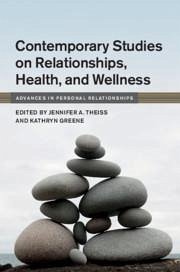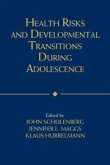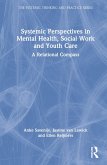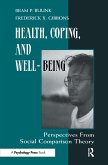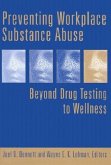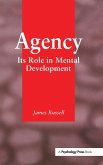Contemporary Studies on Relationships, Health, and Wellness
Herausgeber: Theiss, Jennifer A; Greene, Kathryn
Contemporary Studies on Relationships, Health, and Wellness
Herausgeber: Theiss, Jennifer A; Greene, Kathryn
- Gebundenes Buch
- Merkliste
- Auf die Merkliste
- Bewerten Bewerten
- Teilen
- Produkt teilen
- Produkterinnerung
- Produkterinnerung
Discusses contemporary research that examines the ways that close relationships are involved in, and affected by, health and wellness.
Andere Kunden interessierten sich auch für
![Health Risks and Developmental Transitions during Adolescence Health Risks and Developmental Transitions during Adolescence]() Health Risks and Developmental Transitions during Adolescence189,99 €
Health Risks and Developmental Transitions during Adolescence189,99 €![Systemic Perspectives in Mental Health, Social Work and Youth Care Systemic Perspectives in Mental Health, Social Work and Youth Care]() Anke SavenijeSystemic Perspectives in Mental Health, Social Work and Youth Care174,99 €
Anke SavenijeSystemic Perspectives in Mental Health, Social Work and Youth Care174,99 €![Health, Coping, and Well-Being Health, Coping, and Well-Being]() Health, Coping, and Well-Being197,99 €
Health, Coping, and Well-Being197,99 €![Asian American Identities, Relationships, and Post-Migration Legacies Asian American Identities, Relationships, and Post-Migration Legacies]() Asian American Identities, Relationships, and Post-Migration Legacies186,99 €
Asian American Identities, Relationships, and Post-Migration Legacies186,99 €![Preventing Workplace Substance Abuse: Beyond Drug Testing to Wellness Preventing Workplace Substance Abuse: Beyond Drug Testing to Wellness]() Preventing Workplace Substance Abuse: Beyond Drug Testing to Wellness17,99 €
Preventing Workplace Substance Abuse: Beyond Drug Testing to Wellness17,99 €![The Split Brain II The Split Brain II]() Aurealia N NelsonThe Split Brain II21,99 €
Aurealia N NelsonThe Split Brain II21,99 €![Agency Agency]() James RussellAgency198,99 €
James RussellAgency198,99 €-
-
-
Discusses contemporary research that examines the ways that close relationships are involved in, and affected by, health and wellness.
Hinweis: Dieser Artikel kann nur an eine deutsche Lieferadresse ausgeliefert werden.
Hinweis: Dieser Artikel kann nur an eine deutsche Lieferadresse ausgeliefert werden.
Produktdetails
- Produktdetails
- Verlag: Cambridge University Press
- Seitenzahl: 378
- Erscheinungstermin: 24. Januar 2019
- Englisch
- Abmessung: 234mm x 188mm x 23mm
- Gewicht: 635g
- ISBN-13: 9781108419864
- ISBN-10: 1108419860
- Artikelnr.: 53018957
- Herstellerkennzeichnung
- Libri GmbH
- Europaallee 1
- 36244 Bad Hersfeld
- gpsr@libri.de
- Verlag: Cambridge University Press
- Seitenzahl: 378
- Erscheinungstermin: 24. Januar 2019
- Englisch
- Abmessung: 234mm x 188mm x 23mm
- Gewicht: 635g
- ISBN-13: 9781108419864
- ISBN-10: 1108419860
- Artikelnr.: 53018957
- Herstellerkennzeichnung
- Libri GmbH
- Europaallee 1
- 36244 Bad Hersfeld
- gpsr@libri.de
Introduction: the interdependent influence among relationships, health, and
wellness Jennifer A. Theiss and Kathryn Greene; Part I. Interpersonal
Influence in Health and Relationships: 1. Differences in perceptions of
spousal influence and family communication in cancer risk-reducing
behaviors Wendy C. Birmingham and Maija Reblin; 2. Stigma, heteronormative
passing with healthcare providers, and partner health involvement in male
same-sex couples Stephen M. Haas; 3. 'Let's take a walk': relationship
maintenance and health communication in romantic relationships Tricia
Burke; Part II. Information Management in Health and Relationships: 4.
Health-related issues that individuals with type 2 diabetes avoid
discussing with their romantic partner John Leustek and Jennifer A. Theiss;
5. Closeness, recipient response, and interaction effectiveness: an
application of the actor-partner interdependence model in the mental health
disclosures Maria K. Venetis, Patricia E. Gettings and Skye
Chernichky-Karcher; 6. From the drawing board to the kitchen table: an
analysis of parental messages concerning nutrition, physical activity, and
weight Emily Scheinfeld, Erin Nelson and Brittani Cook; Part III.
Uncertainty in Health and Relationships: 7. 'We have been robbed of the
life we planned': relational turbulence and experiences of Alzheimer's
disease Danielle Catona; 8. Communication as a source of misunderstanding
and a resource for responding to the stress of parental caregiving Teresa
Keeler; 9. Examining uncertainty and interference with cardiology patients:
applying a relational turbulence perspective in health contexts Amanda
Carpenter, Kathryn Greene, Maria G. Checton and Danielle Catona; 10.
Uncertainty management in bereavement: parent and child uncertainty sources
and management strategies Brandi N. Frisby, Jacob M. Matig and Christina J.
Harris; Part IV. Support and Caregiving in Health and Relationships: 11.
Family reactions to partner stress and depression in same-sex couples: a
dyadic examination of the moderating effects of dyadic coping Chun Tao,
Ashley K. Randall and Casey J. Toenhagen; 12. 'I just want my wife and my
life back': men's experiences of stress and social support during their
partner's postpartum depression Keli Steuber-Fazio, Keelin Moran, Caitlin
McNair and Erica Cogland; 13. Communication skills (Comskil) training for
oncology nurses to improve patient centered care Smita C. Banerjee, Ruth
Manna and Patricia A. Parker; Part V. Communication Patterns in Health and
Relationships: 14. Alcoholic and non-alcoholic parents' orientations toward
conformity and conversation as predictors of attachment and psychological
well-being for adult children of alcoholics Marie C. Haverfield and
Jennifer A. Theiss; 15. Alzheimer's caregiver distress in adulthood: the
role of time invested in caregiving and family verbal aggression in
childhood Lindsay Susan Aloia and Anne M. Stone; 16. Depression and sexual
intimacy: layered challenges and communication strategies Amy L. Delaney;
Epilogue: the important role of relationship research in promoting healthy
individuals and relationships Jennifer A. Theiss and Kathryn Greene.
wellness Jennifer A. Theiss and Kathryn Greene; Part I. Interpersonal
Influence in Health and Relationships: 1. Differences in perceptions of
spousal influence and family communication in cancer risk-reducing
behaviors Wendy C. Birmingham and Maija Reblin; 2. Stigma, heteronormative
passing with healthcare providers, and partner health involvement in male
same-sex couples Stephen M. Haas; 3. 'Let's take a walk': relationship
maintenance and health communication in romantic relationships Tricia
Burke; Part II. Information Management in Health and Relationships: 4.
Health-related issues that individuals with type 2 diabetes avoid
discussing with their romantic partner John Leustek and Jennifer A. Theiss;
5. Closeness, recipient response, and interaction effectiveness: an
application of the actor-partner interdependence model in the mental health
disclosures Maria K. Venetis, Patricia E. Gettings and Skye
Chernichky-Karcher; 6. From the drawing board to the kitchen table: an
analysis of parental messages concerning nutrition, physical activity, and
weight Emily Scheinfeld, Erin Nelson and Brittani Cook; Part III.
Uncertainty in Health and Relationships: 7. 'We have been robbed of the
life we planned': relational turbulence and experiences of Alzheimer's
disease Danielle Catona; 8. Communication as a source of misunderstanding
and a resource for responding to the stress of parental caregiving Teresa
Keeler; 9. Examining uncertainty and interference with cardiology patients:
applying a relational turbulence perspective in health contexts Amanda
Carpenter, Kathryn Greene, Maria G. Checton and Danielle Catona; 10.
Uncertainty management in bereavement: parent and child uncertainty sources
and management strategies Brandi N. Frisby, Jacob M. Matig and Christina J.
Harris; Part IV. Support and Caregiving in Health and Relationships: 11.
Family reactions to partner stress and depression in same-sex couples: a
dyadic examination of the moderating effects of dyadic coping Chun Tao,
Ashley K. Randall and Casey J. Toenhagen; 12. 'I just want my wife and my
life back': men's experiences of stress and social support during their
partner's postpartum depression Keli Steuber-Fazio, Keelin Moran, Caitlin
McNair and Erica Cogland; 13. Communication skills (Comskil) training for
oncology nurses to improve patient centered care Smita C. Banerjee, Ruth
Manna and Patricia A. Parker; Part V. Communication Patterns in Health and
Relationships: 14. Alcoholic and non-alcoholic parents' orientations toward
conformity and conversation as predictors of attachment and psychological
well-being for adult children of alcoholics Marie C. Haverfield and
Jennifer A. Theiss; 15. Alzheimer's caregiver distress in adulthood: the
role of time invested in caregiving and family verbal aggression in
childhood Lindsay Susan Aloia and Anne M. Stone; 16. Depression and sexual
intimacy: layered challenges and communication strategies Amy L. Delaney;
Epilogue: the important role of relationship research in promoting healthy
individuals and relationships Jennifer A. Theiss and Kathryn Greene.
Introduction: the interdependent influence among relationships, health, and
wellness Jennifer A. Theiss and Kathryn Greene; Part I. Interpersonal
Influence in Health and Relationships: 1. Differences in perceptions of
spousal influence and family communication in cancer risk-reducing
behaviors Wendy C. Birmingham and Maija Reblin; 2. Stigma, heteronormative
passing with healthcare providers, and partner health involvement in male
same-sex couples Stephen M. Haas; 3. 'Let's take a walk': relationship
maintenance and health communication in romantic relationships Tricia
Burke; Part II. Information Management in Health and Relationships: 4.
Health-related issues that individuals with type 2 diabetes avoid
discussing with their romantic partner John Leustek and Jennifer A. Theiss;
5. Closeness, recipient response, and interaction effectiveness: an
application of the actor-partner interdependence model in the mental health
disclosures Maria K. Venetis, Patricia E. Gettings and Skye
Chernichky-Karcher; 6. From the drawing board to the kitchen table: an
analysis of parental messages concerning nutrition, physical activity, and
weight Emily Scheinfeld, Erin Nelson and Brittani Cook; Part III.
Uncertainty in Health and Relationships: 7. 'We have been robbed of the
life we planned': relational turbulence and experiences of Alzheimer's
disease Danielle Catona; 8. Communication as a source of misunderstanding
and a resource for responding to the stress of parental caregiving Teresa
Keeler; 9. Examining uncertainty and interference with cardiology patients:
applying a relational turbulence perspective in health contexts Amanda
Carpenter, Kathryn Greene, Maria G. Checton and Danielle Catona; 10.
Uncertainty management in bereavement: parent and child uncertainty sources
and management strategies Brandi N. Frisby, Jacob M. Matig and Christina J.
Harris; Part IV. Support and Caregiving in Health and Relationships: 11.
Family reactions to partner stress and depression in same-sex couples: a
dyadic examination of the moderating effects of dyadic coping Chun Tao,
Ashley K. Randall and Casey J. Toenhagen; 12. 'I just want my wife and my
life back': men's experiences of stress and social support during their
partner's postpartum depression Keli Steuber-Fazio, Keelin Moran, Caitlin
McNair and Erica Cogland; 13. Communication skills (Comskil) training for
oncology nurses to improve patient centered care Smita C. Banerjee, Ruth
Manna and Patricia A. Parker; Part V. Communication Patterns in Health and
Relationships: 14. Alcoholic and non-alcoholic parents' orientations toward
conformity and conversation as predictors of attachment and psychological
well-being for adult children of alcoholics Marie C. Haverfield and
Jennifer A. Theiss; 15. Alzheimer's caregiver distress in adulthood: the
role of time invested in caregiving and family verbal aggression in
childhood Lindsay Susan Aloia and Anne M. Stone; 16. Depression and sexual
intimacy: layered challenges and communication strategies Amy L. Delaney;
Epilogue: the important role of relationship research in promoting healthy
individuals and relationships Jennifer A. Theiss and Kathryn Greene.
wellness Jennifer A. Theiss and Kathryn Greene; Part I. Interpersonal
Influence in Health and Relationships: 1. Differences in perceptions of
spousal influence and family communication in cancer risk-reducing
behaviors Wendy C. Birmingham and Maija Reblin; 2. Stigma, heteronormative
passing with healthcare providers, and partner health involvement in male
same-sex couples Stephen M. Haas; 3. 'Let's take a walk': relationship
maintenance and health communication in romantic relationships Tricia
Burke; Part II. Information Management in Health and Relationships: 4.
Health-related issues that individuals with type 2 diabetes avoid
discussing with their romantic partner John Leustek and Jennifer A. Theiss;
5. Closeness, recipient response, and interaction effectiveness: an
application of the actor-partner interdependence model in the mental health
disclosures Maria K. Venetis, Patricia E. Gettings and Skye
Chernichky-Karcher; 6. From the drawing board to the kitchen table: an
analysis of parental messages concerning nutrition, physical activity, and
weight Emily Scheinfeld, Erin Nelson and Brittani Cook; Part III.
Uncertainty in Health and Relationships: 7. 'We have been robbed of the
life we planned': relational turbulence and experiences of Alzheimer's
disease Danielle Catona; 8. Communication as a source of misunderstanding
and a resource for responding to the stress of parental caregiving Teresa
Keeler; 9. Examining uncertainty and interference with cardiology patients:
applying a relational turbulence perspective in health contexts Amanda
Carpenter, Kathryn Greene, Maria G. Checton and Danielle Catona; 10.
Uncertainty management in bereavement: parent and child uncertainty sources
and management strategies Brandi N. Frisby, Jacob M. Matig and Christina J.
Harris; Part IV. Support and Caregiving in Health and Relationships: 11.
Family reactions to partner stress and depression in same-sex couples: a
dyadic examination of the moderating effects of dyadic coping Chun Tao,
Ashley K. Randall and Casey J. Toenhagen; 12. 'I just want my wife and my
life back': men's experiences of stress and social support during their
partner's postpartum depression Keli Steuber-Fazio, Keelin Moran, Caitlin
McNair and Erica Cogland; 13. Communication skills (Comskil) training for
oncology nurses to improve patient centered care Smita C. Banerjee, Ruth
Manna and Patricia A. Parker; Part V. Communication Patterns in Health and
Relationships: 14. Alcoholic and non-alcoholic parents' orientations toward
conformity and conversation as predictors of attachment and psychological
well-being for adult children of alcoholics Marie C. Haverfield and
Jennifer A. Theiss; 15. Alzheimer's caregiver distress in adulthood: the
role of time invested in caregiving and family verbal aggression in
childhood Lindsay Susan Aloia and Anne M. Stone; 16. Depression and sexual
intimacy: layered challenges and communication strategies Amy L. Delaney;
Epilogue: the important role of relationship research in promoting healthy
individuals and relationships Jennifer A. Theiss and Kathryn Greene.

